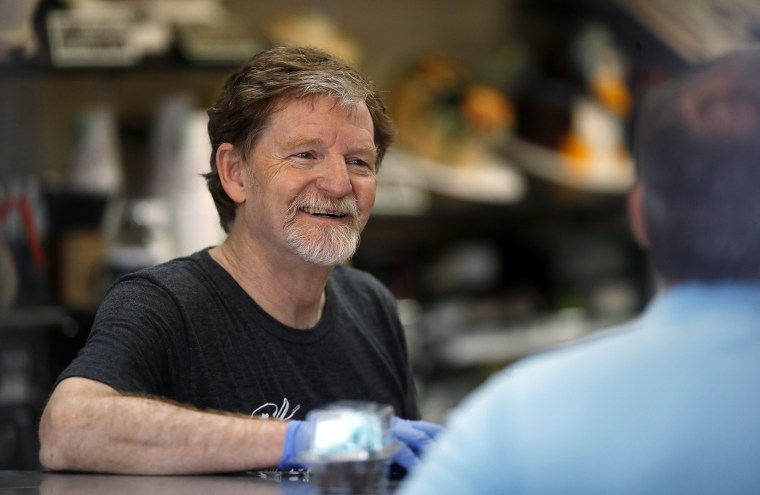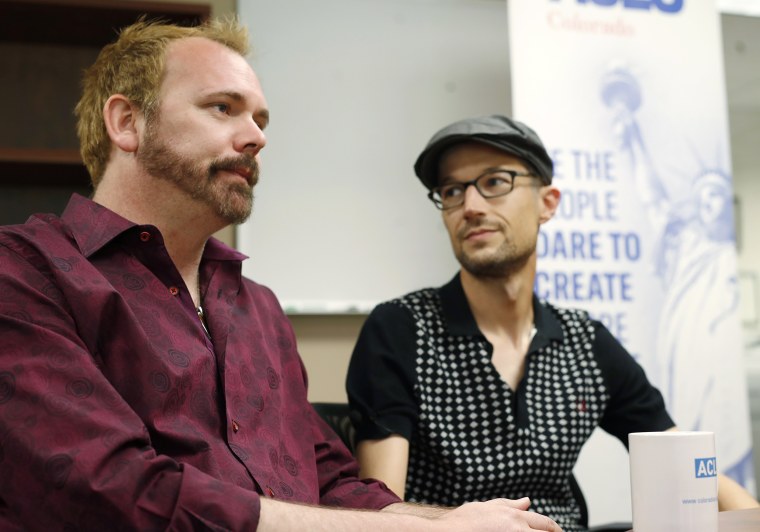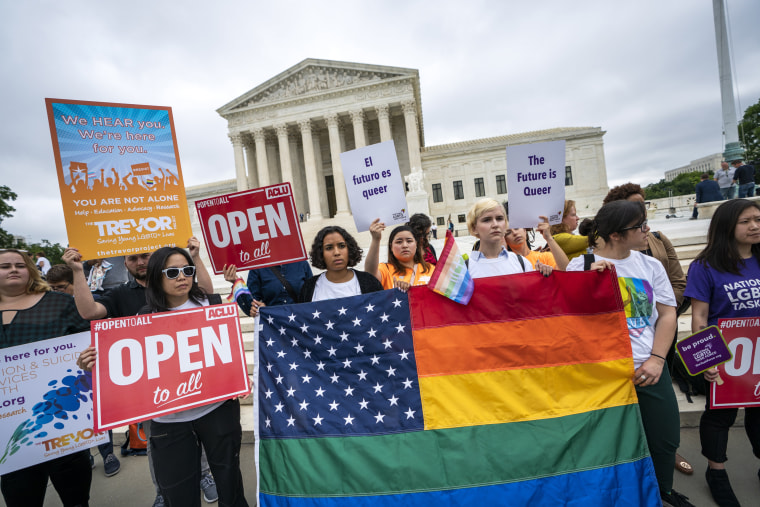LGBTQ groups expressed disappointment on Monday after the Supreme Court ruled that a Colorado baker could not be compelled to make a wedding cake for a gay couple. But they were also relieved that the decision only applied to this case and did not establish a new constitutional precedent.
Rachel B. Tiven, the CEO of Lambda Legal, said the court’s decision “offered dangerous encouragement to those who would deny civil rights to LGBT people and people living with HIV. Religious freedom under our Constitution has always meant the right to believe whatever you wish but not to act on your beliefs in ways that harm others.”
“Today’s decision should have been a firm, direct affirmance of longstanding equality law,” Tiven said. “We will continue to fight in every arena and in every court until LGBT people and people living with HIV have full equality under the law in every aspect of our lives. We deserve no less.”
Some LGBTQ advocates breathed a sigh of relief over the narrow scope of the ruling. The American Civil Liberties Union, which represented the same-sex couple in their case against the bakery, said the decision “reaffirmed the core principle that businesses open to the public must be open to all.”
The baker’s refusal to create a wedding cake for the same-sex couple, Charlie Craig and Dave Mullins, set off a legal battle over whether public businesses may refuse to serve LGBTQ people because of sincerely held religious beliefs.
Jack Phillips, the baker, argued that his cakes constituted works of art and that his religious beliefs prevented him from creating art, or speech, for same-sex couples.

Through the ACLU, Craig and Mullins said, “We brought this case because no one should have to face the shame, embarrassment and humiliation of being told, ‘We don’t serve your kind here’ that we faced, and we will continue fighting until no one does.”
The couple filed a complaint with the Colorado Civil Rights Commission, which referred the matter to an administrative law judge, who rejected Phillips’ First Amendment argument: that requiring him to create a cake for a same-sex couple would violate his right to free speech by compelling him to express a message he disagreed with. The commission and the Colorado Court of Appeals upheld the decision.
The Supreme Court found, however, that the civil rights commission had violated the free-exercise clause of the Constitution in handling the case against the baker. In so doing, the court sidestepped the constitutional question of whether it is legal to refuse to serve LGBTQ people for religious reasons.
“As the record shows, some of the commissioners at the commission’s formal, public hearings endorsed the view that religious beliefs cannot legitimately be carried into the public sphere or commercial domain, disparaged Phillips’ faith as despicable and characterized it as merely rhetorical, and compared his invocation of his sincerely held religious beliefs to defenses of slavery and the Holocaust,” the court wrote.
“The comments thus cast doubt on the fairness and impartiality of the commission’s adjudication of Phillips’ case,” the opinion continued.

In New York, reaction to the ruling was measured. Tyler Hopf, 27, married his partner on Monday in Brooklyn City Hall and was at breakfast with family when a push notification informed him of the ruling.
“Thankfully it seems narrow, but it is a disappointing step backward regardless,” he told NBC News. “And those who can’t afford to fight back will be in worse shape.”
The Campaign for Southern Equality wrote that the decision “departs from longstanding precedent by granting a single Colorado business the right to discriminate.”
“The ruling also does not address the fundamental First Amendment question of whether LGBTQ people should be protected from discrimination in public accommodations. We are confident that the U.S. Supreme Court will ultimately rule that this protection exists,” the group wrote.
The National Gay and Lesbian Chamber of Commerce also expressed disappointment with the ruling. “Despite the court’s narrow decision focused on the specifics of the Colorado law, NGLCC continues to assert that religious or personal convictions are not a valid reason to deny services or benefits to the LGBT community anywhere,” it said in a statement.
But the Log Cabin Republicans praised the Supreme Court for striking a delicate balance. “There will be many on the left who will say that this ruling opens the door to rampant discrimination, and many on the right who will declare that this is a major milestone for advocates of religious liberty — but neither will be correct,” said Gregory T. Angelo, president of the gay Republican group. “When faced with the contentious issue of balancing religious freedom and LGBT equality, today the Supreme Court wisely decided to hit the pause button.”
